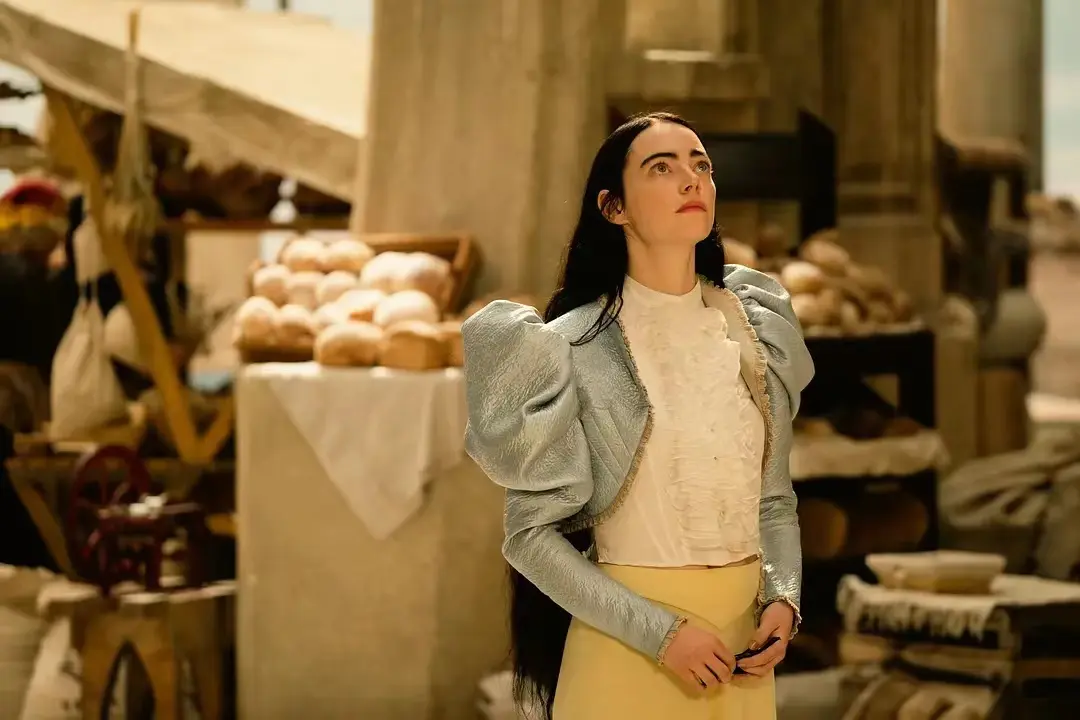
Poor Things and its formal hypocrisy
on Yorgos Lanthimos's Poor Things
Poor Things, directed by Yorgos Lanthimos and starring Emma Stone, Mark Ruffalo, and Willem Dafoe, has garnered impressive box office success and four Oscar awards, including Best Leading Actress for Emma Stone and three other awards for its technology on costume, makeup and production design. Notably, in Brazil, it debuted at the third spot, amassing an estimated $0.5 million -- a remarkable opening that surpassed expectations. The movie revolves around Bella Baxter’s resurrection with her unborn child’s brain, sparking discussions about independence, sexuality, and societal influence. As the Oscar buzz continues, Poor Things continues to spark discussion as well. Here, we'd like to raise one possible objection to the film.
——————
The future has arrived. Lanthimos and his new film pretty much previewed for global audiences one of the worst possibilities for future cinema. As AI becomes increasingly proficient at mimicking the intricacies of the human body, when the extravagantly excessive set design is justified by a vacuous world setting, and when moral problems are calibrated to find a balanced solution solely through the lens of big data, hence comes the film Poor Things: A film that suffocates every breath of air, tightly encased in plastic wrap, resembling an exhibition of cinema as a vast totalitarian machine. In this regard, it stands as a striking allegory indeed.
This grand deception has shrewdly anchored itself upon what appears to be a secure fulcrum - a female body, Emma Stone’s body. From a singular perspective, this body appears to attain a sense of "subjectivity", and gender issues are neatly ensconced within a framework that can be linked to universal emotional experiences. However, one must not hesitate to interrogate films that purport to be "coming-of-age", as all pathways of personal growth that are depicted must be examined, in order to discern whether they authentically unfold within the character's being or are merely replicas of the author's preconceived imprints.
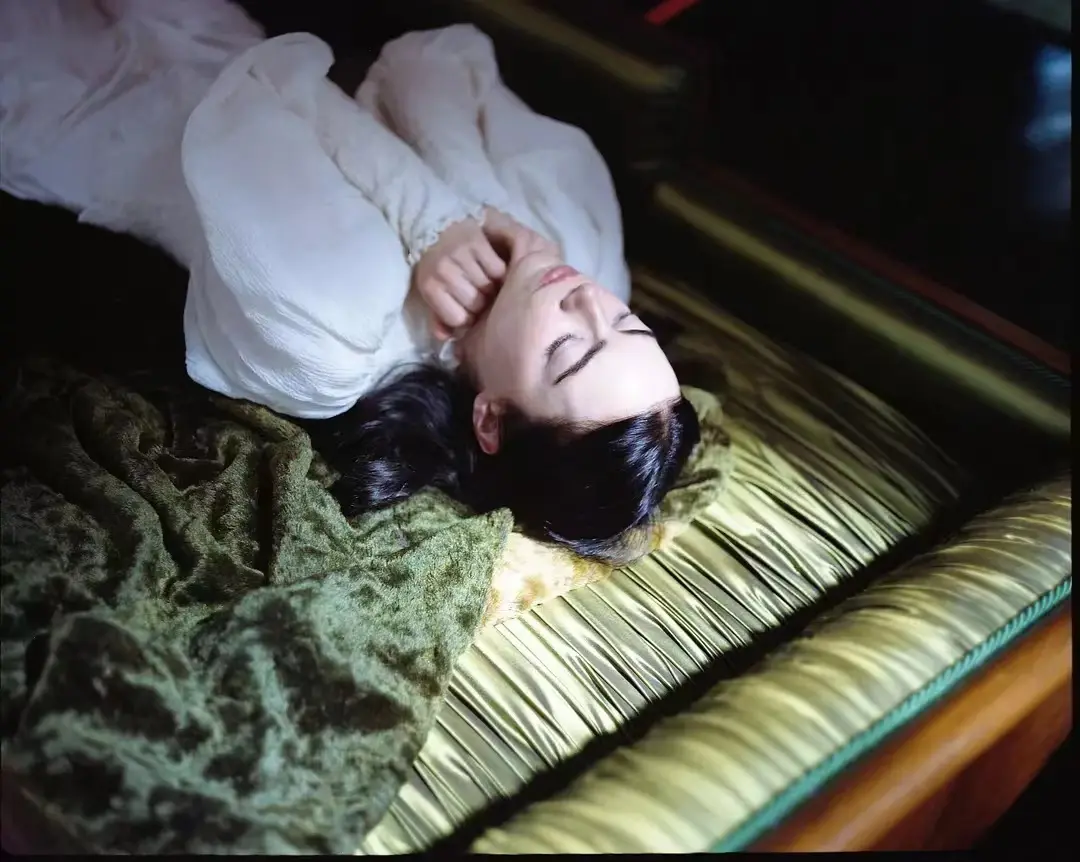
From the portrayal of a baby-like puppet to the exploration of desire to food and sex, the character’s physicality as a human being is gradually reclaimed; Lanthimos and Emma Stone endeavor to craft a bodily existence that serves as a metaphor for the predicament of women within patriarchal structures, forming the foundation of the film's symbolic framework. Infused with a shallow interpretation of the dark Gothic aesthetics, we witness a sort of "inhuman" performance -- an attempt to exert control over their own bodies down to every joint, every utterance, manifesting an extreme portrayal of the female character’s "being trapped". However, this kind of depiction devolves into an unsettling rigidity and mutilation under the guise of excessive control. The film initially hints at a series of pre-existing narratives: a harrowing past life, a rebirth after transformation and imprisonment; but following pregnancy and fall, her skin remains unblemished and the body pristine. Therefore, it's not truly Bella's circumstances that shape her existential stance; her body becomes an experiment cast into the void, much like the myriad images referenced throughout the film. It never owns a true gesture, instead becoming the rhetoric of a soulless image, ensnared and adrift in a false dialectic.
Above all, the body of Bella failed to harbor any secrets beyond exploration. It performs relish when eating, performs drunkenness when drinking, and performs pleasure when having sex. Every action could be observed and analyzed, akin to an electronic component laid bare. We are not even privy to the appearance of the food she eagerly consumes for another bite; instead, our focus is narrowed to her facial expression as she eats, reduced to an illustration of the mechanics of desire, alongside rapid zooms in and out during intimate scenes. In the end, the audience are told everything but feels nothing.
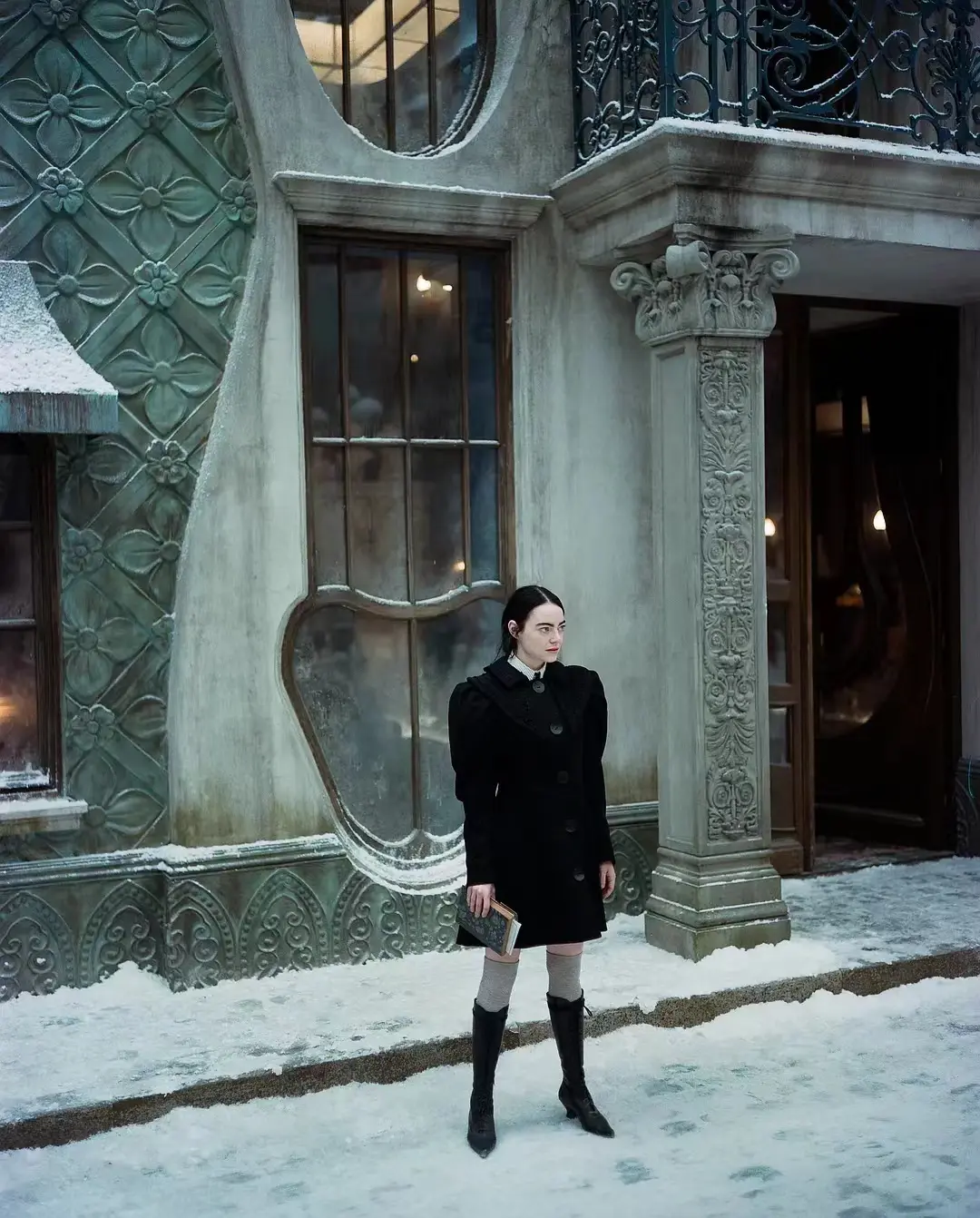
Recall those cinematic moments that truly evoke the sensation of our bodies stirring to life. In the opening scene of Up, Down, Fragile (1995), fleeing from a violent darkness, we step alongside Louise into the dawning of a new day. A body that has slumbered for five years feels as weightless as an ideal newborn. The camera, positioned across the street, pans rhythmically as Louise moves parallel and across, gliding past the shadows of a tree and then framing another street in a vertical orientation. Our gaze instinctively follows the camera's graceful movement as it extends into the distance. There's no need for contrived strangeness or exaggerated close-ups, devoid of the artificial vibrancy of AI-generated paintings. Yet, we keenly sense the temperature and rhythm of the air, and discern the unmistakable, budding posture of the characters. However, notice the black travel bag in Louise's hand -- its obvious weight restrains one arm from swinging freely, requiring her stride to adjust slightly against it. Because of the weight of this single travel bag, we witness a walking gesture that struggles against gravity, a gesture that reflects the character's circumstances. As the body awakens from its slumber, it carries its own history. This history isn't reduced to a symbolic cliché but manifests as a multifaceted gravitational force that tugs at the character's body and shapes her movements.
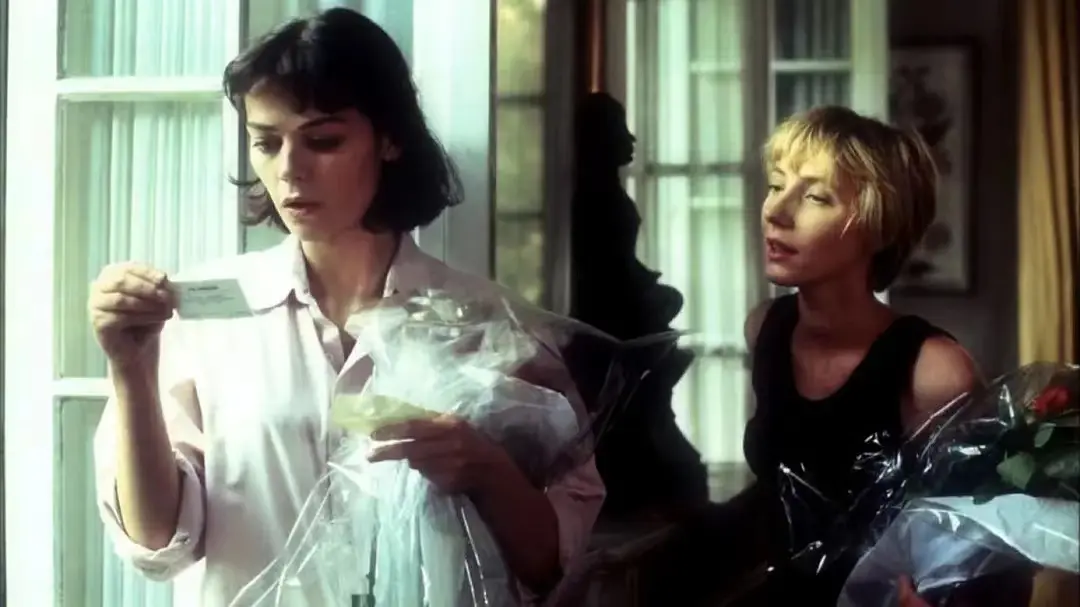
Where Up, Down, Fragile succeeded, Poor Things completely failed. Perhaps in Lisbon, a singing voice -- a voice infused with genuine breath, though enhanced with artificial reverb -- momentarily wafts over the intricately adorned fence. But can we truly believe that the song resonated within Bella's body as the camera draws nearer, capturing Emma Stone’s face framed at the center of the frame, seemingly striving to convey the facial expression of "dumbstruck" at its maximum? There's hardly any depth to this overly externalized expression. A character endowed with genuine subjectivity must possess a mystery that transcends the confines of the script or even the image itself, impervious to measurement by any observer.
Bella who stares when hearing the song, Godwin who dies with his eyes half-open, and the General who turns into a goat and gazes blankly -- each character takes their turn accompanying Lanthimos in a staring contest: "Hang in there. We’re about to get a close-up. Good, good." This form of still-life performance, where even the actress’s eyelash remains frozen, has become the supreme doctrine of this troupe. Manipulating the camera to craft a grandiose and distorted "audio-visual language", exploiting characters in the pursuit of sensory experience, the ingenious "experimentation" becomes a display of power for Lanthimos to revel in. Is the trajectory of the camera's movement akin to the roller coaster tracks of an amusement park for Lanthimos? All fluctuations of movement and speed are enslaved, transformed into puppets in service to an instantaneous excitement.
In the original novel, Bella gradually begins to explore her own identity as she explores the world. However, in the film adaptation, Bella's exploration of desire and intellect takes precedence, while the introspective question of "who am I" is sidelined, only to be utilized as a narrative tool for a deceptive resolution towards the film's end. Assuming that Bella’s wild dance can really open up a path to freedom, why does the film abandon this extreme physicality (wouldn't it be more aligned with its dark tone?) and turn instead to a return to "normalcy" in the latter part of the film? It becomes apparent that, whether Bella is depicted as a Barbie doll with a children’s mind and a sexualized body, or as an ascetic sadist crowned with intellect, her body merely serves as two endpoints on the spectrum of sexually charged male desire. This constructed world fails to offer a genuine escape route, and Bella's circular trajectory of "growth", which begins and ends in the house, reflects Lanthimos' own desires which oscillate from sadism to masochism. Lanthimos seems unaware to this, as evidenced by his statement: "She acknowledges that she will get tired, she will be hurt, but she goes on. … I think Poor Things is my most positive film, my most hopeful film." [1] Yet, the laughter of the male audience in theaters suggests otherwise. If the film indeed reflects some semblance of reality, why does it fail to elicit even a hint of pain?
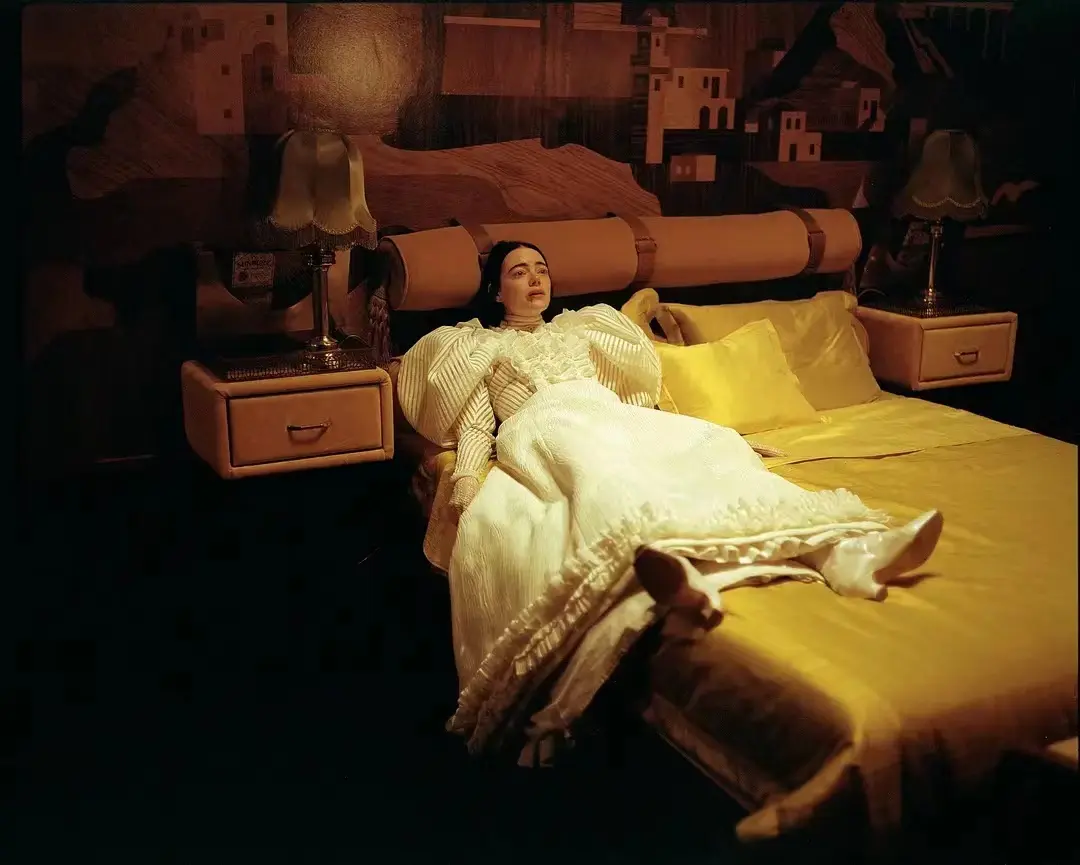
Certainly, one might still remain unconvinced, as everything can find its own shallow justification within a framework of simplistic dualism: Godwin is both an apostate blasphemer and a loving parent, but yet he is emasculated under the patriarchy; Max is portrayed as both pedophilic and impotent, yet somehow an innocent feminist man from the outset; Bella is expected to exhibit a kind of naïve malevolence, killing frogs and desecrating corpses without batting an eye, because she is supposed to be unaffected by societal norms. But she must read books too, and display heart-wrenching compassion for the underprivileged. However, reading alone cannot save the world, so the alternative is to become a prostitute and confront the abyss of the world through one's own flesh. Show her subjectivity and take revenge, yes; but break with her father’s generation, no. If one finds dissatisfaction with these portrayals, it's often dismissed as a failure to comprehend the lofty metaphors presented; accusations of voyeurism are brushed aside as "medical observation and media self-reflexivity", while criticisms of an obsession with ugliness are deflected as "parody aimed at satirizing the unsightly aspects of human nature"...
However, how much false morality lurks within the dichotomy of "both" and "and"? The notion of "good" is not solely a mere performance of virtue, but also serves as a veneer and justification for evil. Within the closed loop of self-referential logic, there exists no space for generative thought. Instead of advocating for calculated mellowness, perhaps we should champion a kind of paranoid sincerity, even if such sincerity is inevitably provocative. If cinema remains an art about human beings that hasn't been overrun by technology, then we ought to perpetually celebrate the "finite", the unabashedly fragile, the doubtful, and the unavoidably incomplete polysemy.

【1】Yorgos Lanthimos on Poor Things :Sight and Sound interview by Nicole Flattery
wirtten by azai
THE DISSIDENTS are a collective of cinephiles dedicated to articulate our perspectives on cinema through writing and other means. We believe that the assessments of films should be determined by individuals instead of academic institutions. We prioritize powerful statements over impartial viewpoints, and the responsibility to criticize over the right to praise. We do not acknowledge the hierarchy between appreciators and creators or between enthusiasts and insiders. We must define and defend our own cinema. |


 Log in
Log in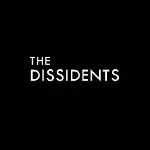

No comments yet,
be the first one to comment!